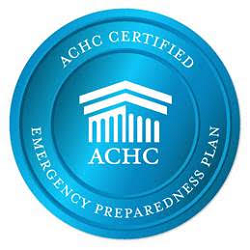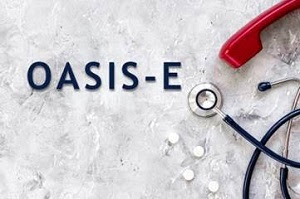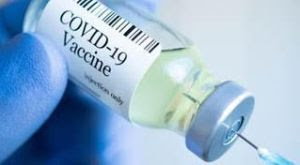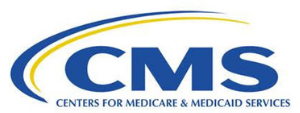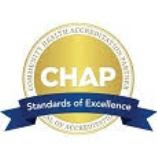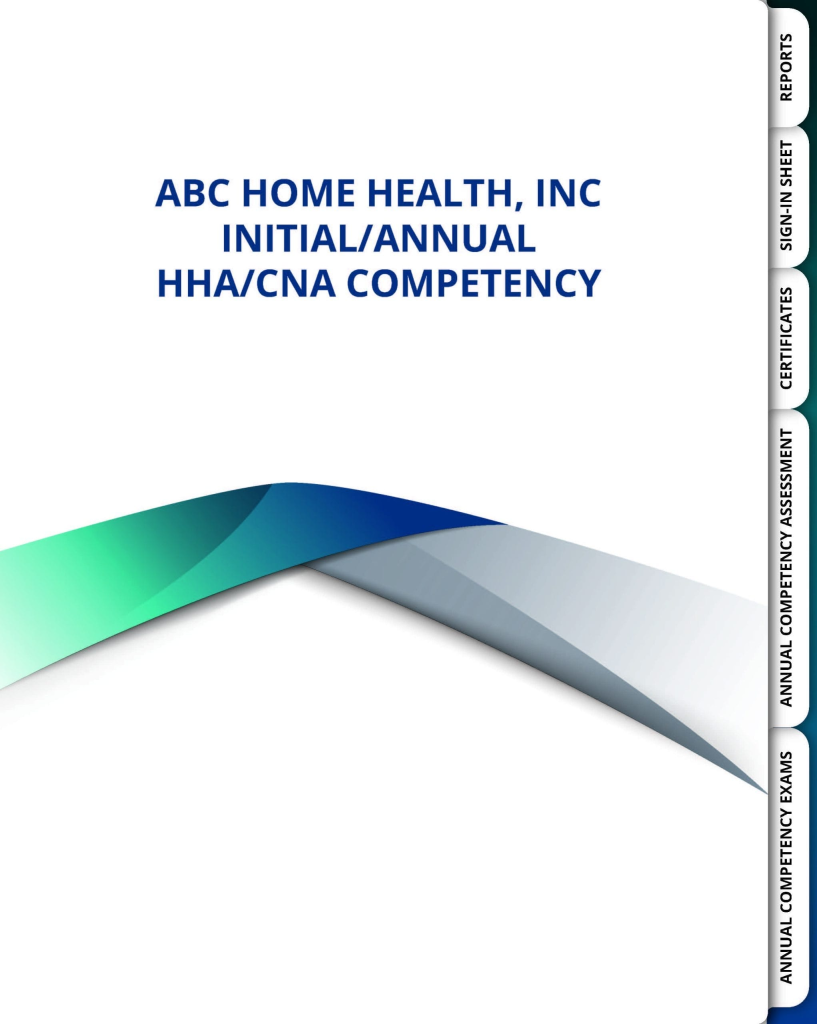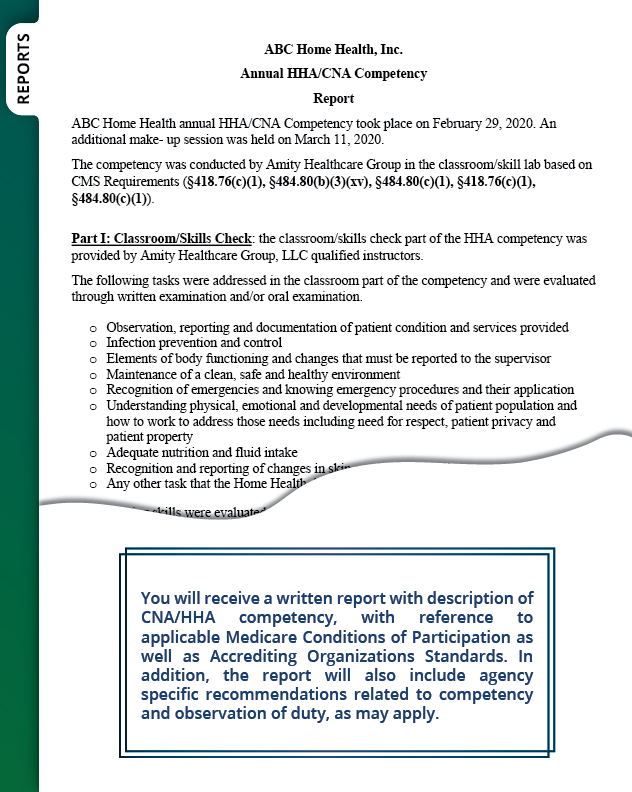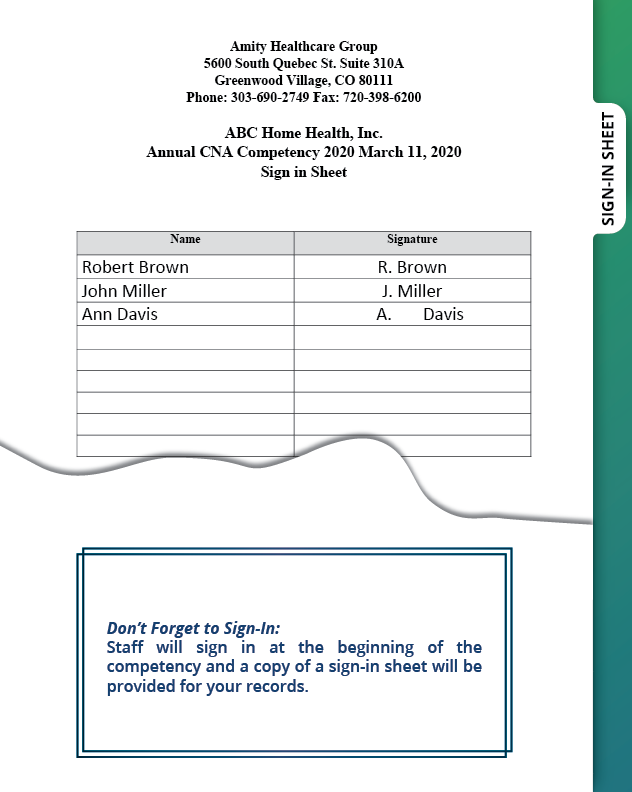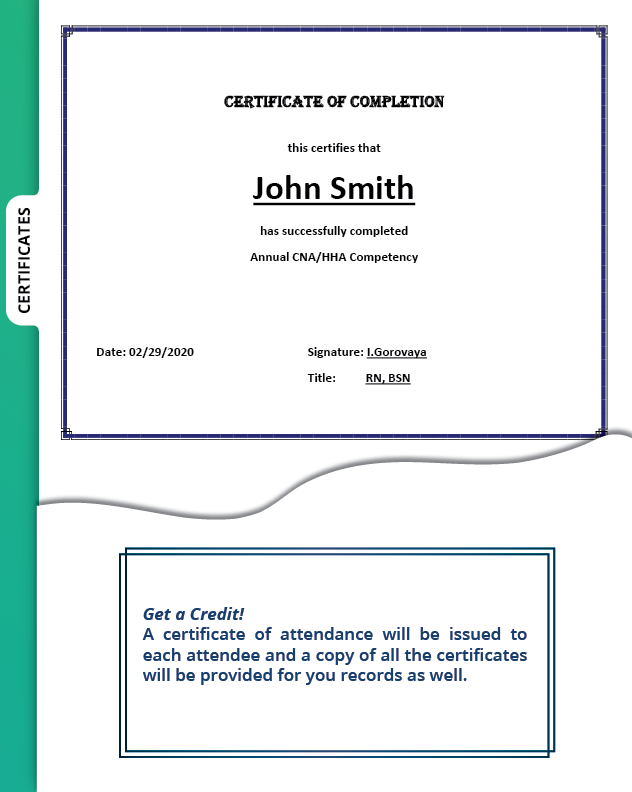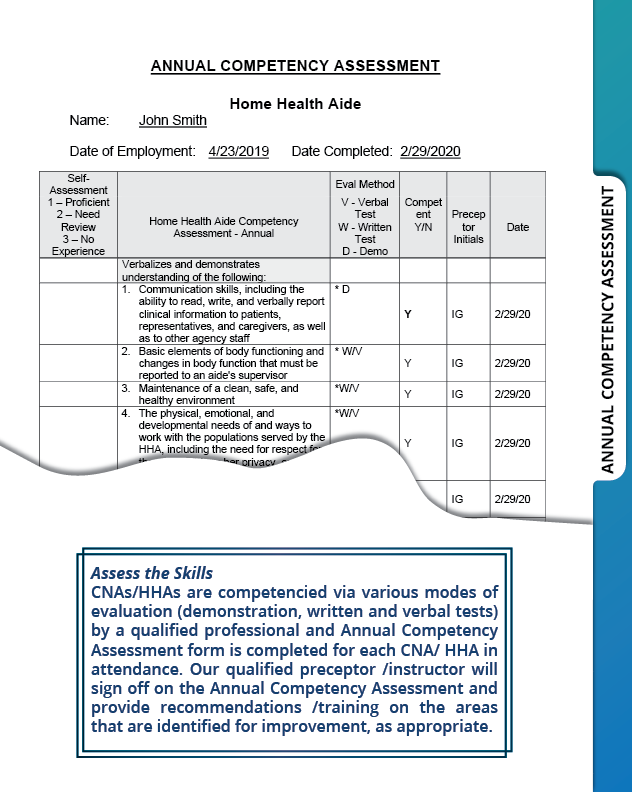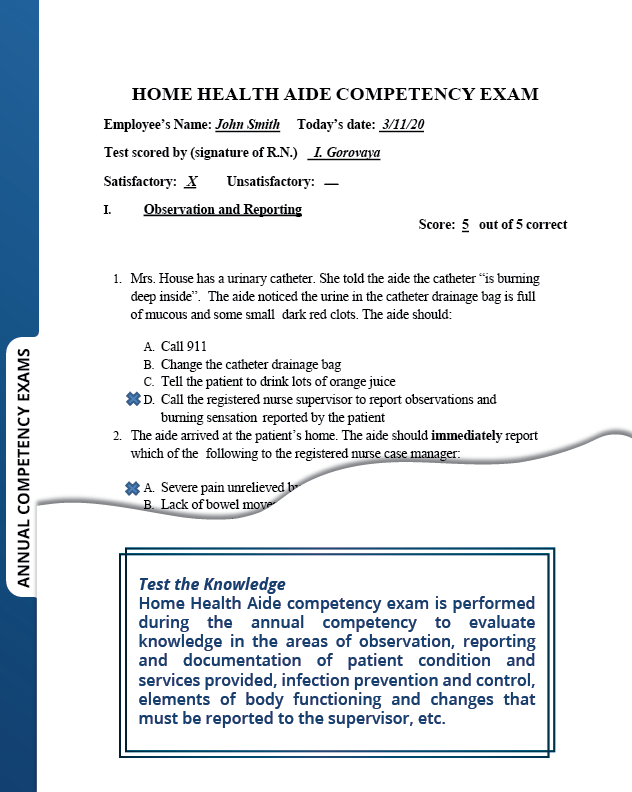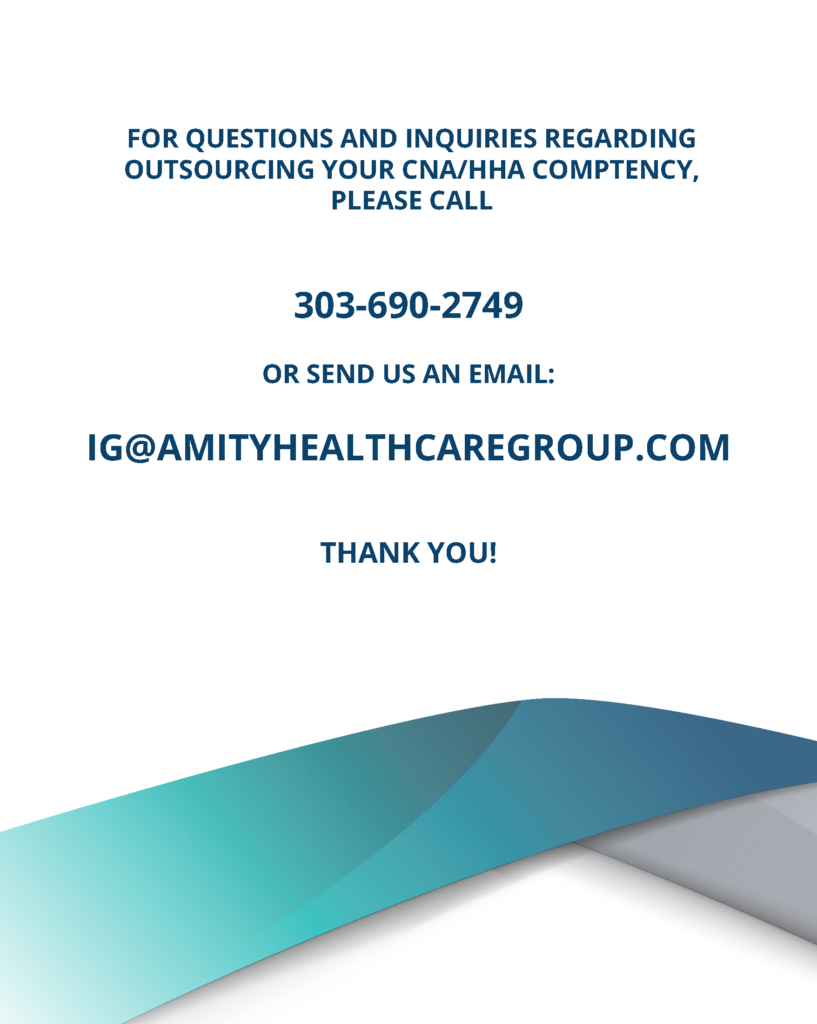Amity’s News!
Amity Healthcare Group Home Health Policy and Procedure Manual Received ACHC Certification.
ACHC certification is a verification that the product is in compliance with ACHC requirements.
Our Policy and Procedure Manual has been designed to meet ACHC standards and Medicare Conditions of Participation for home health organizations. The manual is customizable to further meet your agency needs and align the proposed policies and procedures with the internal organizational practices while ensuring compliance with Medicare Conditions of Participation and ACHC standards. The manual also includes multiple forms, practical tools, and references. State-specific Policy and Procedure manuals are available upon request.
OASIS item N0415: High -Risk Drug Classes: Use and Indication Part 2
In a previous OASIS E Corner, we discussed the importance of determining whether the patient is taking any prescribed medications in any of the drug classes specified in this item. In today’s OASIS-E Corner, we will discuss the second component of this item which is determining whether the indication of use was noted for all medications in the high-risk drug class.
Documentation of indication of use has been a significant challenge for clinicians since the implementation of OASIS-E. It is important to ask the following questions:
- Do we have the documentation from the provider?
- Why is the patient taking this high-risk medication?
Why is it important for us to know why the patient is taking the high-risk medication?
- It is important for clinicians to know because every patient should have an individualized plan of care.
- The patient may not know why they are taking the high-risk medication, and if the medical record does not contain documentation of indication of use for the high-risk medication, the patient faces an increased risk of adverse events, ER visits, and hospital readmissions.
If the indication of use for high-risk medications is not documented in the medical records, the best practice would be for the clinician to contact the provider to gather this information and incorporate it into the individualized plan of care including any relevant teaching necessary for the patient and monitoring for any adverse events related to the medication.
NATIONAL NEWS
CMS Ends COVID-19 Vaccination Requirements
In our last newsletter, we discussed CMS final rule ending the COVID-19 vaccination requirements for health care providers.
The final rule was set to be published in the Federal Register on June 5, 2023, and was expected to become effective 60 days after it was posted to the register (August 4, 2023). Continued compliance with the COVID-19 vaccination rule was also expected to be assessed until the time the final rule becomes effective to end the requirement.
Since, June 5, 2023, additional clarification of the rule was received as related to enforcement of staff vaccination provisions. According to the Federal Register published on June 5, 2023, “Federal rules generally become effective 60 days after publication; however, the COVID-19 PHE expired on May 11, 2023. Our decision to terminate the omnibus facility staff vaccination requirements in this final rule reflect our determination that the emergency circumstances which occasioned these vaccination provisions no longer exist. Since facilities are no longer operating under PHE circumstances, and considering the lower policy priority of enforcement within the remaining time, we will not be enforcing the staff vaccination provisions between now and the effective date, which is 60 days after the date of the publication in the Federal Register”
This means that starting on 6/05/23, surveyors will no longer assess compliance with these requirements for any providers. However, providers still need to be aware of and comply with any state/local requirements that may still be in effect, as well as ensure compliance with their own agency policies.
CMS Guidance on Unannounced Surveys
On June 19, 2023, Accreditation Organizations (AOs) received notice from CMS regarding guidance on unannounced surveys, blackout dates, and complaint process as follows:
“In accordance with both §488.5(a)(4)(i), which requires unannounced surveys, as well as our long-standing instructions in Chapter 2 of the State Operations Manual (SOM), Section 2700A, we are reiterating that all surveys of providers and suppliers (other than clinical laboratories) must be unannounced. No contact should occur with the facility prior to the surveyor or survey team’s entrance into the facility.”
“Any prior notice of a survey, via email, electronic portals, phone calls, or other means of communication, is considered a violation of CMS regulations.”
“CMS is aware that some AOs allow facilities to request “blackout dates,” which are dates the facility requests or prefers not to be surveyed. Allowing facilities to request dates when they wish not to be surveyed is not consistent with CMS’ survey expectations.”
“Administrative reviews or offsite complaint investigations and contacting facilities in advance of a complaint survey are inconsistent with CMS’s survey processes for SAs and, therefore, not comparable with or equivalent to CMS as required at §488.5(a)(4)(ii).”
The changes to AOs processes must be implemented by July 14.
Preserving Access to Home Health Act of 2023
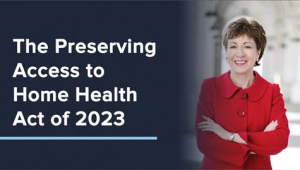
Senators Debbie Stabenow (D-MI) and Susan Collins (R-ME) introduced a bipartisan Preserving Access to Home Health Act of 2023 bill on June 22. The bill would repeal the requirement that the Centers for Medicare and Medicaid Services (CMS) make determinations related to the impact of behavior changes on estimated aggregate expenditures and would eliminate CMS’s authority to adjust home health payments based on such determinations under Patient-Driven Groupings Model (PDGM).
According to the National Association for Home Care and Hospice (NAHC), the bill will “safeguard access to essential home-based, clinically advanced healthcare services by preventing the Centers for Medicare & Medicaid Services (CMS) from implementing dire cuts of negative 7.85% to the Medicare Home Health Program, which translates to more than $18 billion over the next decade.” Specifically, the bill is designed to address deep cuts made to home health by CMS during the implementation of the Medicare home health payment system – Patient Driven Groupings Model or PDGM – by making the following policy changes:
- Repeals permanent and temporary payment adjustments. The bill would repeal the requirement that CMS make determinations related to the impact of behavior changes on estimated aggregate expenditures and would eliminate CMS’s authority to adjust home health payments based on such determinations under PDGM. This change would take effect and be implemented as if it was included in the Bipartisan Budget Act of 2018 that included home health provisions leading to PDGM implementation.
- Instructs MedPAC to analyze the Medicare Home Health Program. The bill instructs MedPAC to review and report on aggregate trends under Medicare Advantage, Medicaid, and other payers, and consider the impact of all payers on access to care for Medicare home health beneficiaries. To verify MedPAC’s calculations, the Commission would be required to make its calculations public. This provision would also add requirements for Medicare home health cost reports to include data on visit utilization and total payments by program to facilitate this MedPAC analysis.
Requirements for Hospital Discharges to Post-Acute Care Providers

U.S. Centers for Medicare & Medicaid Services (CMS) is calling out hospitals for ensuring that the health and safety of patients are protected when discharges from hospitals and transfers to post-acute care providers occur.
According to a recent memo from the agency, “CMS has identified areas of concern related to missing or inaccurate patient information when a patient is discharged from a hospital.”
The memo also states that “when a patient is discharged from a hospital, it is important to provide their post-acute provider and caregivers, as applicable, with the appropriate patient information related to a patient’s treatment and condition in order to decrease the risk of readmission or an adverse event.”
The memo includes references to several tools that hospitals could adopt as a part of the patient care handoff between the acute and post-acute care, including Hospital to Post-Acute Care Transfer Form.
Renewed ABN Form

Just a reminder that the Advanced Beneficiary Notice of Noncoverage (ABN), Form CMS-R-131, and form instructions have been approved by the Office of Management and Budget for renewal.
The use of the renewed form with the expiration date of 01/31/2026 will be mandatory on 6/30/23. Providers may continue to use the ABN form with the expiration date of 6/30/23 until the renewed form becomes mandatory on 6/30/23. The ABN form and instructions may be found here in the downloads section.
CHAP and Growth Solutions
Did you know that CHAP has recently announced the launch of its new division, Growth Solutions, a transformational growth consulting service tailored for the community-based healthcare industry?
This solution will be suitable for organizations seeking to grow, boost patient admissions and referral share.
CHAP’s Growth Solutions are designed to help clients navigate complex market dynamics, achieve differentiation, and foster sustainable growth. Whether an organization needs assistance with sales strategy and infrastructure, leadership development, and executive coaching, CHAP Growth Solutions is able to provide expert support.
To learn more about CHAP’s Growth Solutions, please see informational flyer.
COLORADO NEWS
Attention Colorado HCBS Providers and Direct Care Workers!
Amity Healthcare Group is offering free specialized dementia training courses for Colorado HCBS providers/direct care workers.
Providers will be able to select from the following courses:
- The Alzheimer’s and Dementia Caregiving at Home (available on Mondays and Wednesdays)
- Creating Safe Home Environment for People Living with Dementia and Alzheimer’s Disease (available on Fridays)
To register for your free course, please go HERE
Nurse Aide Services
According to 6 CCR 1011-1 Chapter 26- Home Care Agencies, section 6.13 (B) Nurse Aide Services
(B) The HCA shall ensure that each nurse aide it employs is certified by DORA within four (4) months of starting employment and that certification remains current. Each aide that provides care and services prior to certification shall be supervised in the home by direct observation at least weekly for the first month of employment and every two (2) weeks thereafter until certification is obtained.
(1) HCAs that employ nurse aides awaiting certification shall do so in accordance with Section 12-255-214, C.R.S.
–
Amity Healthcare Group communicated with the Colorado Board of Nursing in regard to clarification of interpretation of the four (4) month statutory certification exemption as used in section 12-255-214(1)(d), C.R.S. pertaining to Certified Nurse Aides and received the following information:
“The 120 rule via Board Policy 10-07(please see HERE) only applies to those students who complete training at an approved in-facility nurse aide training program as an employee of that facility. No other training program types may utilize this policy for their graduates. At no time may a graduate of an independently owned, community college, or high school program work while unlicensed. The Board policy is based on the federal regulations allowing those who work and take training within the facility that is approved to offer nurse aide training. Those who qualify under the policy may work for 120 days while they wait to take the exam. If they fail any portion of the exam during that 120 days the policy expires and they cannot work as a CNA until they have passed both portions of the exam and received their CNA from the state. If one is unable to complete both portions of the exam within the 120 days they must cease working as a CNA on that 120th day until they have completed both portions of the exam and received their CNA from the state.”
Amity’s newsletters will be archived on Amity’s Healthcare Group website at https://amityhealthcaregroup.
Please do not hesitate to reach out for any assistance or questions via email, phone, or website at https://amityhealthcaregroup.
If you wish to forward this email to your colleague or friend, please feel free to do so. If you received this message as a forward, we invite you to subscribe to our communications at https://amityhealthcaregroup.
Thank you,
Irina Gorovaya, RN BSN, MBA
Amity Healthcare Group, LLC
Home Health Consulting, Education and Outsourcing Services
720-353-7249 (cell) 303-690-2749 (office) 720-398-6200 (fax)
www.amityhealthcaregroup.com

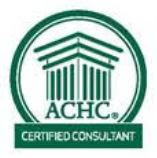
Confidentiality Notice:
The information contained in this message is privileged and confidential information intended for the use of the individual or entity named above.Copyright © 2022 Amity Healthcare Group, All rights reserved.
You are receiving this email because you opted in at our website
Amity Healthcare Group
5600 S. Quebec St Suite 310-A
Greewood Village, CO 8011

